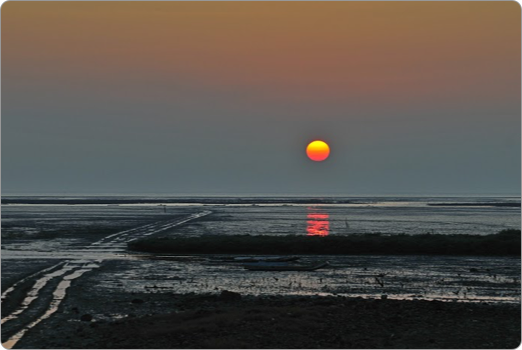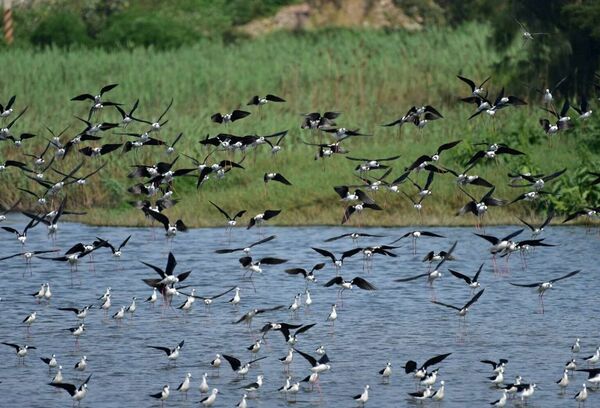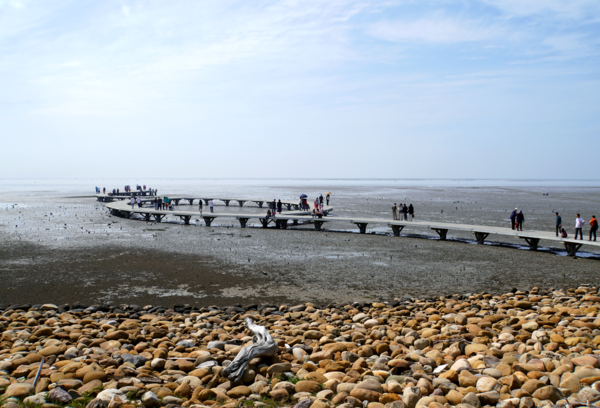17-Kilometer Coastline Scenic Area and Siangshan Wetland
The Hsinchu City coastline extends from Nanliao Village in the north to Nangang in the south. It measures 19.35 km following the curve of the coast and 14.25 km as the crow flies, which averages to 16.8 km, thus the name “17-Kilometer Coastline.” It is an emergent coastline, with an intertidal zone that is more than 1,000 ha. large and the biggest coastal wetland in northern Taiwan. The area contains a fishing harbor, a mangrove park, a birdwatching zone, beach, estuarine mudflats and cycling paths. Its wind turbines and the Kerya Water Reclamation Center are part of the city’s green initiatives. Together, these facilities contribute to ecological, industrial, economic, educational, research, and environmental industries. They not only raise quality of life but also develop non-polluting industries that preserve the environment, thus attracting tourists.
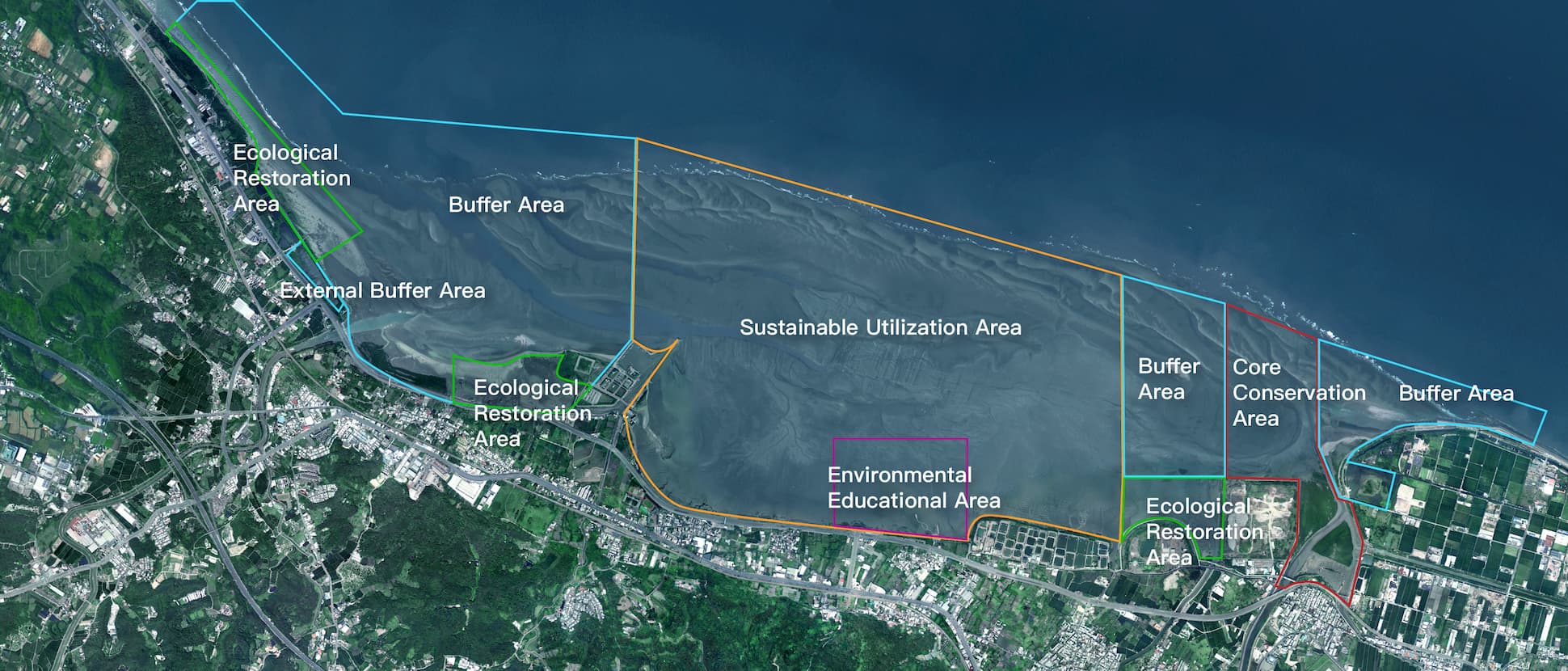
In 1996, the Ramsar Convention recognized Siangshan Wetland as an Eastern Asia-Pacific Water Bird Protection Network.
On December 14, 2001, the Hsinchu City Government announced formation of the Hsinchu City Coastal Wildlife Refuge.
In 2013, Siangshan Wetland was designated as a wetland of national importance.
Extends from the mouth of the Keya River in the north (near Jincheng Lake) to Wuming Ravine in the south (at the border of Hsinchu and Miaoli), and from the coastline in the east (the border demarcation) to the limit of low tide in the west (does not include Haishan Fishing Port, Jinshui Landfill, or the Kerya Water Reclamation Center).
1,768 ha.
Harsh Wetland Conditions
Tides make coastal wetland habitats inhospitable to most organisms. Only those that can withstand high temperatures,
a wide range of salinities, dry periods, the force of the waves, and the turbidity of ocean water can survive. While the variety of organisms in the wetland is not large, the number of organisms is high. These conditions create a distinct ecological landscape
Wetland Creatures Find Ways to Survive
Benthos organisms in Siangshan Wetland hide in the mud when the tide rises then emerge as it recedes. Crabs and snails, including hermit crabs and the Thais clavigera intertidal snail, are among the creatures to be found. Within the muddy flats are Laternula marilina, Asian hard clams, and members of the Sanguinolaria genus, while mud clams and members of the Nereis genus can be detected in deeper areas. An abundance of creatures live both at ground level and under the surface.
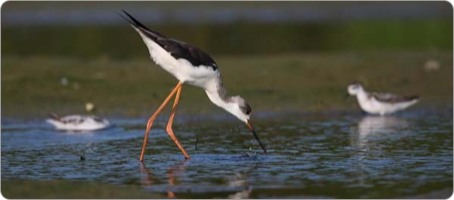 Numenius arquata orientalis
Numenius arquata orientalis
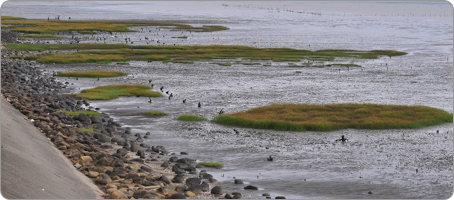 Bolboschoenus planiculmis
Bolboschoenus planiculmis
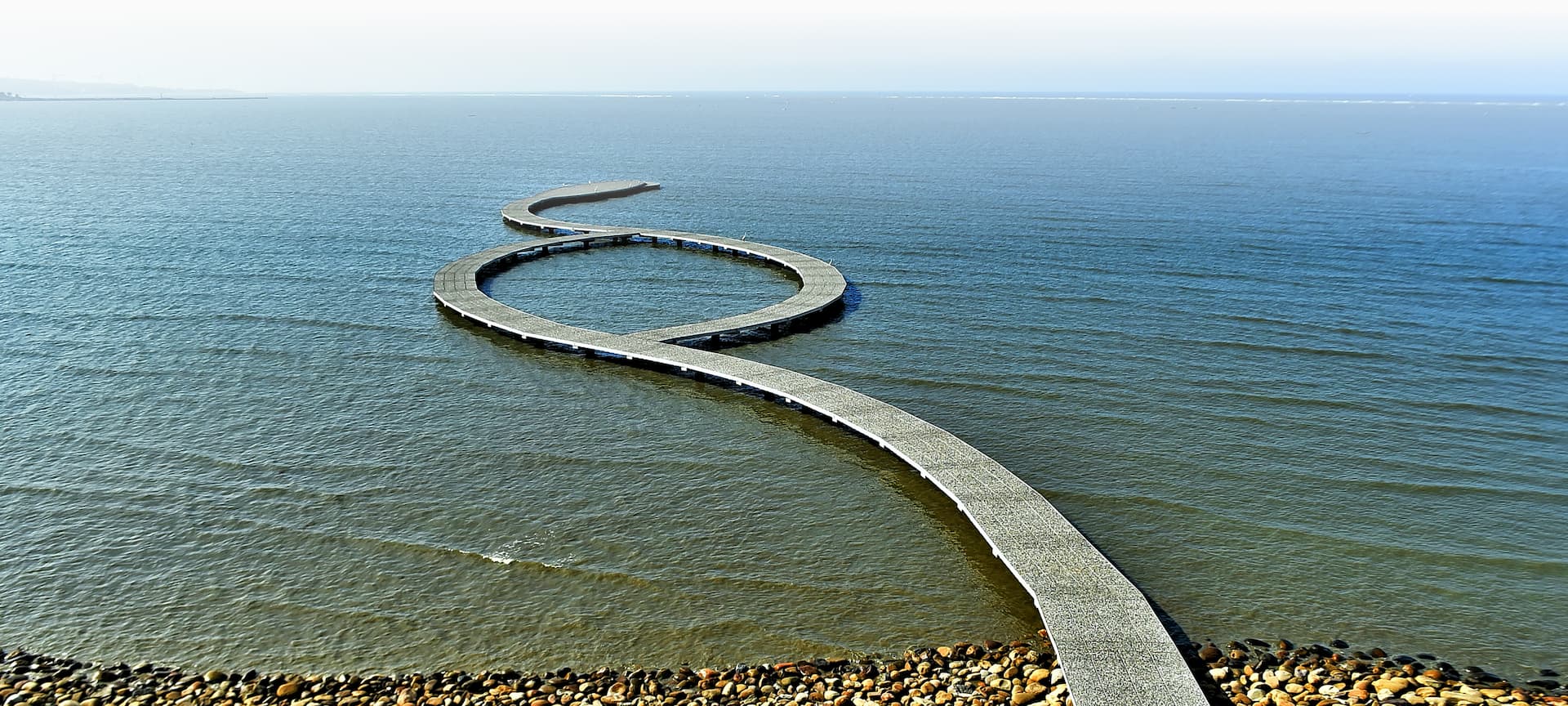
Transportation
No. 318, Section 5, Zhonghua Road, Siangshan District, Hsinchu City, 300
Hsinchu City Western Coast Expressway, next to the Splendid Coastline
CAR
National Freeway No. 1
Exit at the Hsinchu Interchange (towards Hsinchu) → Take Guangfu Rd. → Follow Dongda Rd. to the end (County Rd. 122) → Follow Haibin Rd. to Hsinchu Fishing Harbor, arriving at the northern section of Hsinchu’s 17-Kilometer Coastline Scenic Area.
National Freeway No. 3
Exit at the Zhulin Interchange (towards Qionglin) → Take Expressway No. 68 west to the end → Take Rongbin Rd. → Take Nanliao Blvd. to Hsinchu Fishing Harbor, arriving at the northern section of Hsinchu’s 17-Kilometer Coastline Scenic Area.
Public Transit
TRAIN
Exit at Hsinchu Train Station (Taiwan Railways) then walk to the city bus stop. Take Hsinchu Bus Blue 15 to the Nanliao Tourist Information Center. Bus tickets are NT$15 for a full-priced ticket and NT$8 for a concessionary ticket.
BUS
Take Hsinchu Bus Blue 15 to the Nanliao Tourist Information Center. Bus tickets are NT$15 for a full-priced ticket and NT$8 for a concessionary ticket.
